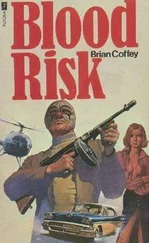Deon Meyer - Blood Safari
Здесь есть возможность читать онлайн «Deon Meyer - Blood Safari» весь текст электронной книги совершенно бесплатно (целиком полную версию без сокращений). В некоторых случаях можно слушать аудио, скачать через торрент в формате fb2 и присутствует краткое содержание. Жанр: Старинная литература, на английском языке. Описание произведения, (предисловие) а так же отзывы посетителей доступны на портале библиотеки ЛибКат.
- Название:Blood Safari
- Автор:
- Жанр:
- Год:неизвестен
- ISBN:нет данных
- Рейтинг книги:4 / 5. Голосов: 1
-
Избранное:Добавить в избранное
- Отзывы:
-
Ваша оценка:
- 80
- 1
- 2
- 3
- 4
- 5
Blood Safari: краткое содержание, описание и аннотация
Предлагаем к чтению аннотацию, описание, краткое содержание или предисловие (зависит от того, что написал сам автор книги «Blood Safari»). Если вы не нашли необходимую информацию о книге — напишите в комментариях, мы постараемся отыскать её.
In Blood Safari
A complicated man with a dishonorable past, Lemmer just wants to do his job and avoid getting personally involved. But as he and Emma search for answers from the rural police, they encounter racial and political tensions, greed, corruption, and violence unlike anything they have ever known.
Blood Safari — читать онлайн бесплатно полную книгу (весь текст) целиком
Ниже представлен текст книги, разбитый по страницам. Система сохранения места последней прочитанной страницы, позволяет с удобством читать онлайн бесплатно книгу «Blood Safari», без необходимости каждый раз заново искать на чём Вы остановились. Поставьте закладку, и сможете в любой момент перейти на страницу, на которой закончили чтение.
Интервал:
Закладка:
And thus, in time, the little miracle began. Johan le Roux and his tutors gradually realised he had an instinct for gears, a head for the many ratios and variations they had with each other and the machines that drove them. By the time he qualified as a fitter his skill was widely recognised and his solutions in a dozen different engines were saving the railways thousands.
One summer morning in 1956, two Afrikaner businessmen from Bothaville walked into the big workshop. Over the racket of hammering and filing and cutting, they shouted that they were looking for the Le Roux boy’tjie who was so good with gears. They built farm implements for the maize farmers of the Northern Free State and they needed his talents in order to compete with the expensive machinery that was being imported from America and the UK.
His stoker father was against it. The state was a reliable employer, an insurance policy against depression and war and poverty. The private sector was run by the English and Jews and foreigners, all out to cheat the boere, in his opinion; a risky existence. ‘Pa, I can design my own stuff. I can draw up the plans myself and cut the forms and put the machines together piece by piece. I can’t do that in the Railways,’ was his argument. At the end of the month he left by train for the little town on the Vals river, where the gods prepared to smile on him.
He was everything his new employers had hoped he would be – hard working, dedicated and ingenious. His ideas were innovative, his products successful; his reputation became known in wider circles. It was barely a year later that he met Sara.
This moment is a crucial one in the Le Roux story, as it is in many family histories I have heard over the years. When Emma presented it, there was the old amazement at destiny, the fate that determined a chance crossing of paths for her future parents and so decided her genetic blueprint.
The small industrial area of Bothaville is to the north of the town, on the other side of the railway line. To reach his boarding house in the town centre, Johan le Roux had to use the pedestrian bridge at the station and walk down the platform. Sweaty and begrimed, carrying his tin lunch box, he followed his usual path one late afternoon. In passing, he glanced inquisitively through the windows of the brightly lit, jam-packed station tearoom. And spotted the pretty young woman sitting there. He was stopped in his tracks. It was a magical scene: the petite girl in the gay hat and snow-white blouse, with red lips, holding a cup of tea in her delicate hands.
For a long time he stood on the twilit platform watching out for her, torn by the knowledge that she was meant for him, but that his oil-stained overall was not going to make a good impression. Nor could he risk going home to change; by the time he returned she might have left with the train.
Eventually, he opened the door and made his way through the tables to where she sat. ‘I’m Johan le Roux,’ he said. ‘I look a lot better when I’ve had a bath.’
She looked up and to her eternal credit she saw the man behind the workman, the gentle smile, intelligent eyes and the zeal for life. ‘I’m Sara de Wet,’ she said, holding out her hand without hesitation, ‘and my train has been delayed.’
He offered to buy her another cup of tea. For an immeasurable instant she hesitated, she would tell her children, like someone teetering at the top of a precipice. She knew with absolute certainty that her ‘yes’ or ‘no’ was a fork in the road through her life. ‘Yes, please, I would like that,’ she answered. In the hour before the drawn-out whistle of her train called her away, they had exchanged life stories and taken the first steps on the road to love. She was the elder of two daughters of the only lawyer in Brandfort, on her way to Johannesburg to work as a typist for a mining company. She had a secretarial certificate from a Bloemfontein college – and a nervous excitement about the great adventure awaiting her in the city. He wrote his address on the back of the tearoom account (now a yellowing, barely legible fragment of history that Emma preserved in an old family Bible) and said she could write to him if she liked.
She had. At first they corresponded for a month or three and then the long-distance romance took shape. Once a month he would go up for a weekend, every week he received a long letter and sent one off. Every now and then, just to hear her voice, he would ring her over the crackling country telephone lines of Bothaville.
Until a year later, when the men from Sasol appeared at his workshop door. It was 1958. Their plant had already been operating for three years, but some of the gears on the coal lines would just not work smoothly. They had come looking for a contractor to maintain and improve them, and rumour had it that Johan le Roux was the master of gears.
The contract he negotiated was large enough for him to open his own business in Vanderbijl Park, but not so generous that he could ask for her hand. He had to wait until 1962, when his debts were paid off. But in those four years they saw each other at least every weekend, and could talk on the phone every day.
In 1963 they were married in Brandfort and together they ran Le Roux Engineering Works – he in the workshop, she on administration and accounts. Three years later Jacobus Dawid le Roux was born and Sara became a full-time mother and housewife. By 1968 they were ready for another child, but Johan le Roux’s growing reputation brought yet another revolution to their life. This time it was a long black sedan at the workshop door – and three white men in black suits and hats who had come to see him. They were from the newly formed Arms Development and Production Corporation, the predecessor of what later became Armscor in 1977. He had to sign an oath of silence before they told him about the artillery pieces and armoured vehicles that had to be designed and built. Since they had already established by careful enquiries that he was a good Afrikaner, they had come to offer him the gearing contract.
This new income stream had two consequences. The first was that Johan and Sara le Roux grew rich. Not overnight and not without merit, for the state is an unsympathetic client and it took long hours of blood and sweat. But over a period of nearly thirty years, Le Roux Engineering grew to an industry with three giant workshops and a separate building in Johannesburg for research, management and administration.
The second consequence was that they had to wait until 1972 before they could think of another child. That was the year Emma Le Roux was born. On 6 April, a birthday she shared with the entire Republic in those days.
‘Then they moved to Johannesburg so my father didn’t have to travel so much.’
My own intuition was that Big Bucks no longer felt entirely at home in the middle-class greyness of Vanderbijl Park. Linden was the neighbourhood of the up-and-coming wealthy Afrikaner in those days.
‘And that was where I grew up,’ with an apologetic wave of her hand that said ‘that was my fate’. I could see the earlier heaviness had lifted, as if the telling of her story had somehow freed her. She smiled a little self-consciously, and checked her watch. ‘We must be up early tomorrow.’
We went outside. The night was an incubator of heat and humidity. Far off to the west there was lightning. While we followed the brightly lit pathways back to the Bateleur suite, I considered her story. I wondered whether she ever thought about the source of her wealth, built on the foundation of apartheid and international sanctions and now so wholly politically incorrect. Was it a guilty conscience which made her place so much emphasis on her parents’ poor background?
Was the origin of her wealth the reason she had a career, the reason she did not simply live off her interest?
Читать дальшеИнтервал:
Закладка:
Похожие книги на «Blood Safari»
Представляем Вашему вниманию похожие книги на «Blood Safari» списком для выбора. Мы отобрали схожую по названию и смыслу литературу в надежде предоставить читателям больше вариантов отыскать новые, интересные, ещё непрочитанные произведения.
Обсуждение, отзывы о книге «Blood Safari» и просто собственные мнения читателей. Оставьте ваши комментарии, напишите, что Вы думаете о произведении, его смысле или главных героях. Укажите что конкретно понравилось, а что нет, и почему Вы так считаете.












